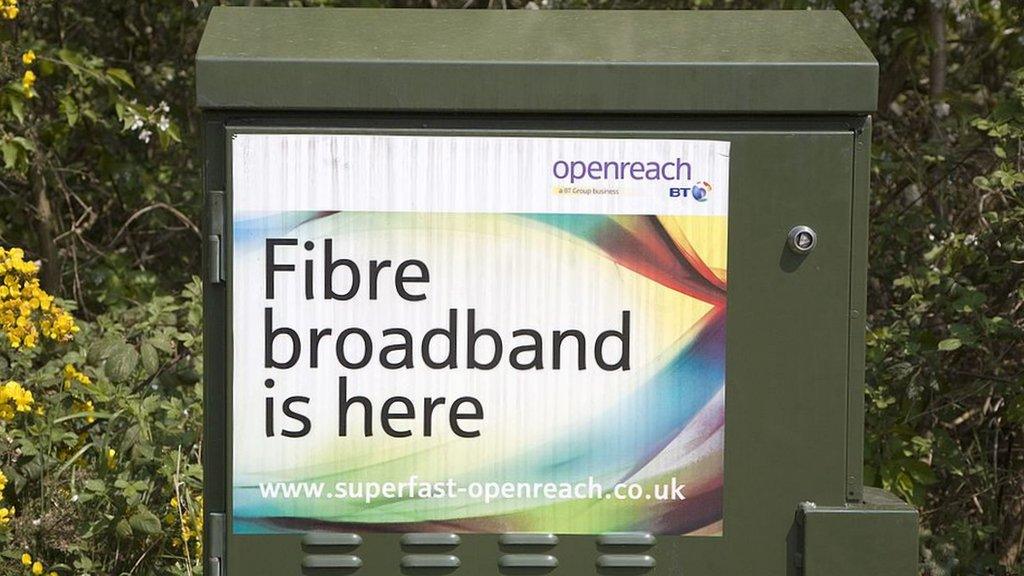Virgin Media O2 'completes' gigabit upgrade after two years
- Published
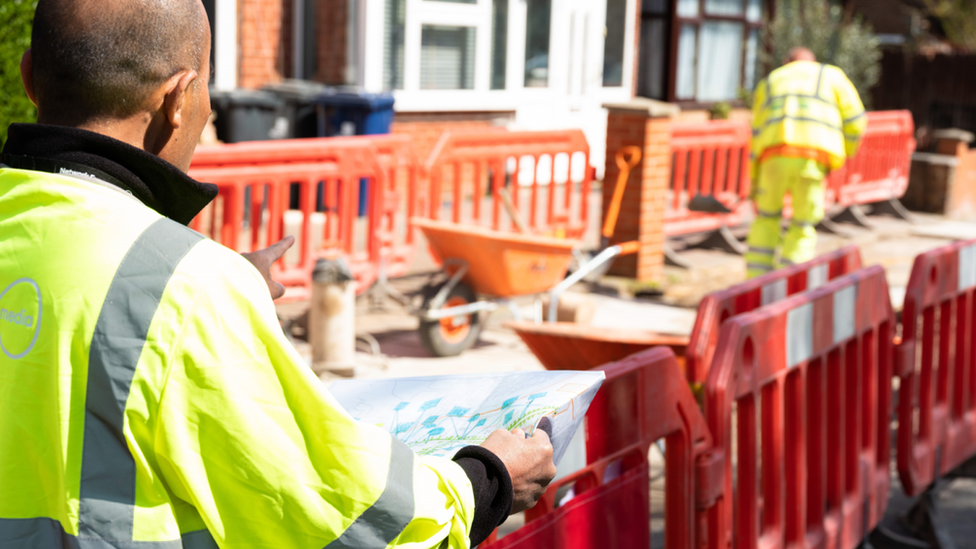
Virgin Media O2 says it has completed an upgrade enabling gigabit speeds at all 15.5 million homes on its network.
Gigabit broadband means speeds of more than 1,000Mbps (megabits per second) - about 20 times the average home connection speed.
Reaching such speeds has been a government goal since it made election pledges on broadband in 2019.
Virgin says it has "single-handedly" delivered nearly two-thirds of the government goal.
The scale of the rollout, which took about two years, is "extremely impressive", said analyst Paolo Pescatore from PP Foresight.
But Virgin had an easier time of it than other broadband providers, as it updated its systems to provide better performance on its existing wires.
"In essence this overlay boosts capacity and download speeds rather than having to dig up roads and install new cables," Mr Pescatore said.
And Virgin "clearly lags its rivals on fibre, which is an area that remains a key battleground for all providers", he warned - as so-called "full-fibre" may offer much better speeds in the future.
As a result of this upgrade, Virgin now says its gigabit network is "more than twice the size of its nearest competitor".
'Top priority'
The company says every home on its network can now access network speeds of up to 1,130Mbps. Recent research from telecoms regulator Ofcom found the average home broadband connection stood at 50.4Mbps.
Customers must pay more for access to the highest-speed packages, with full gigabit speeds costing at least £62 a month.
Virgin's progress completing the upgrade is being welcomed, with Digital Secretary Nadine Dorries saying that high-speed internet remains a "top priority".
"Virgin Media O2's efforts mean we're making quick progress in our mission to level up the UK with better connectivity," she said.
"We must ensure that rural areas are not left behind," she added, pointing to promised investments for "hard-to-reach communities".
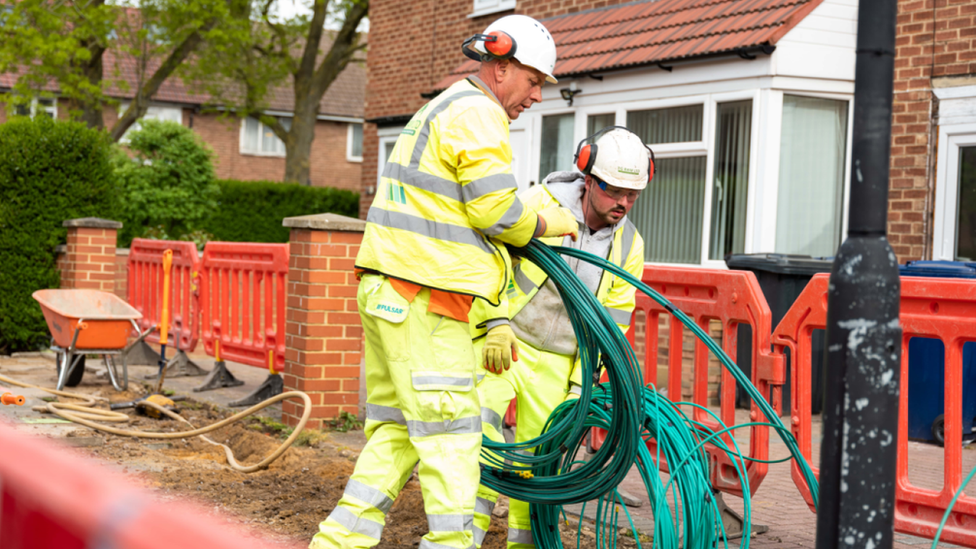
Virgin's chief executive Lutz Schüler said the company's investment "has catapulted the UK's digital infrastructure forward by a decade and forced others to up their game".
"As the country's largest gigabit provider by far, we're the driving force behind widespread gigabit availability four years ahead of the Government's target," he said.
He also stressed that the company planned to invest more in the next decade.
'Key battleground'
In 2019, Prime Minister Boris Johnson promised to have full-fibre broadband in every home by 2025, eight years sooner than previous plans.
Amid scepticism from the industry over that goal, it was later revised to be "gigabit-capable" broadband, rather than full fibre - which meant Virgin's network would be included in the numbers.
The goal was also later downgraded from every home to 85% of premises.
Mr Pescatore said that changes to government targets "certainly worked in [Virgin's] favour". But for now, most consumers do not need - or are willing to pay for - such high speeds.
"Not everyone will demand gigabit connectivity. People are now more price-conscious than ever, and value connectivity above anything else," he said.
But despite that, offering fast speeds as an option is a "key battleground" for providers.
"People's insatiable appetite for always-on connectivity is showing no signs of slowing down, meaning more and new emerging devices in the home will need to be connected all the time - requiring better connections throughout the home, something that is proving to be an important area for households."
Related topics
- Published25 July 2019
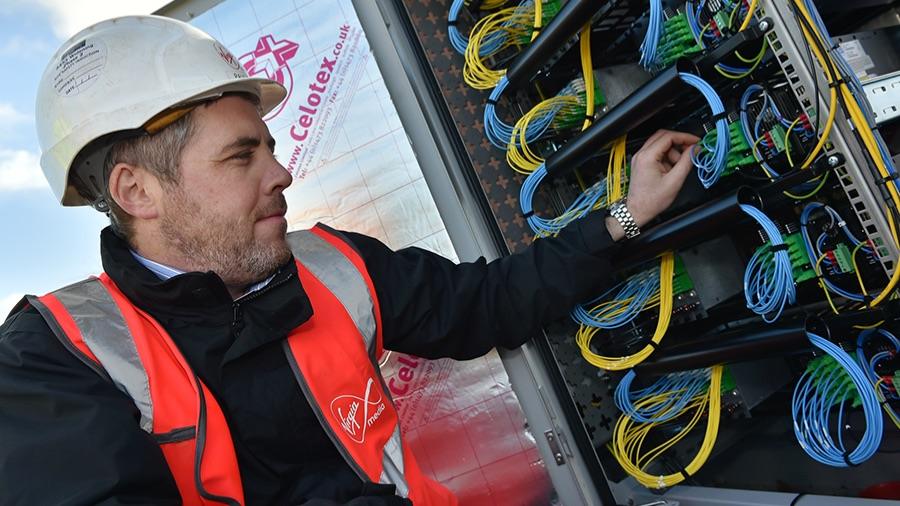
- Published3 December 2020
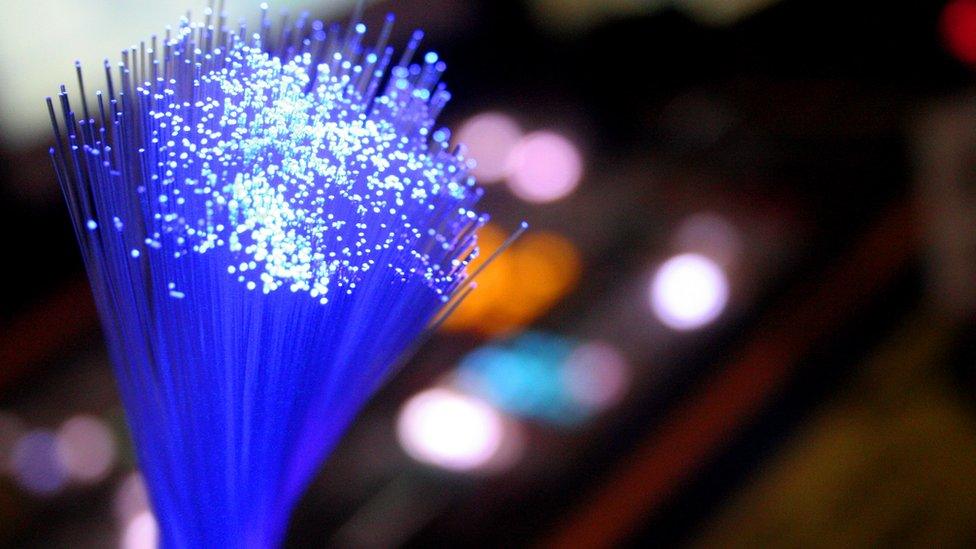
- Published25 November 2020
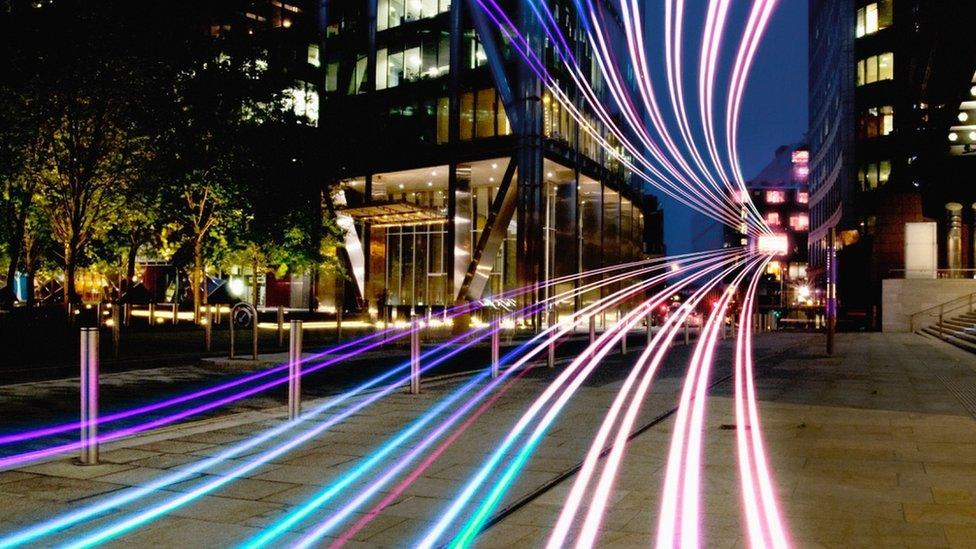
- Published14 October 2019
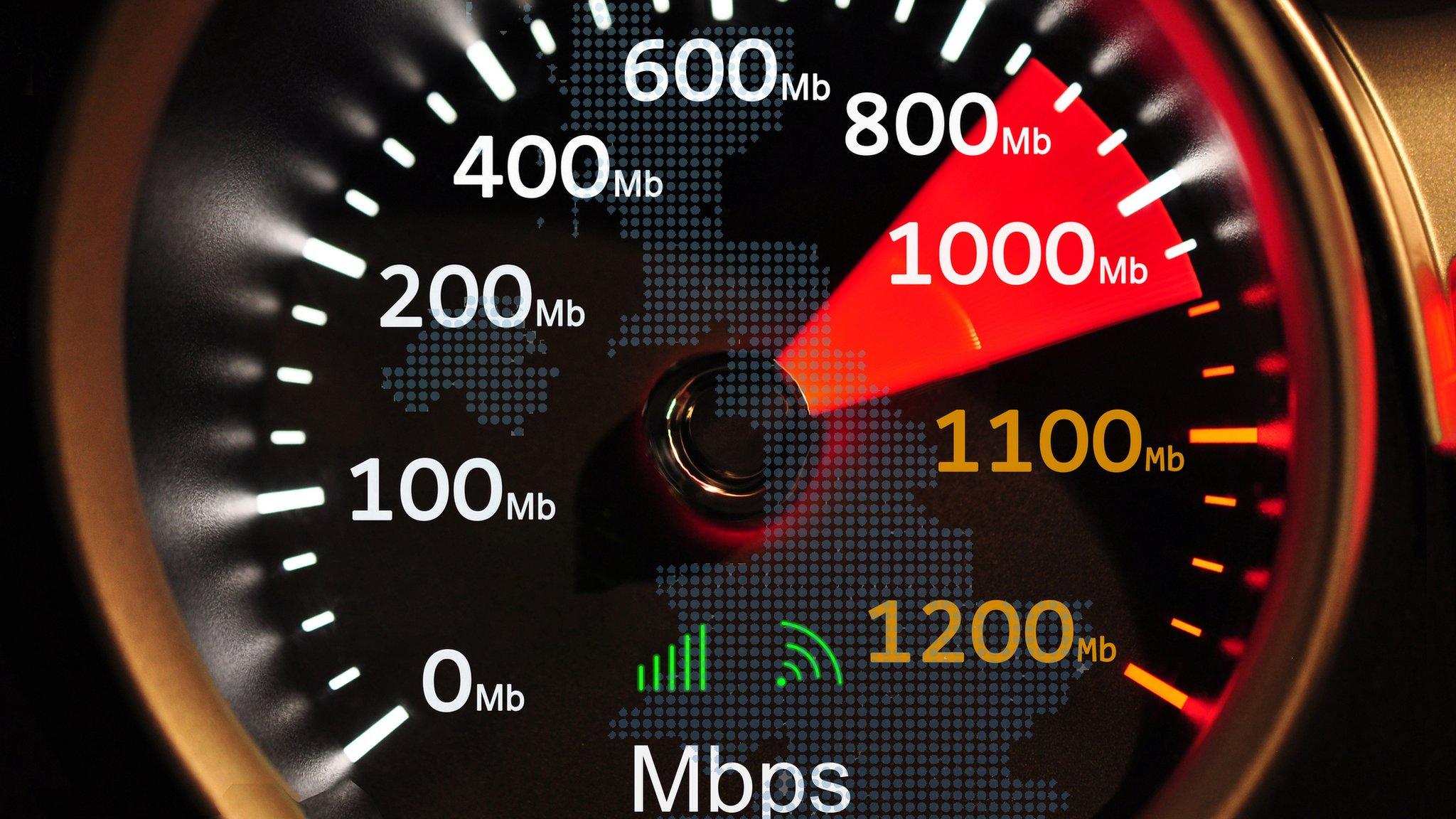
- Published1 December 2021
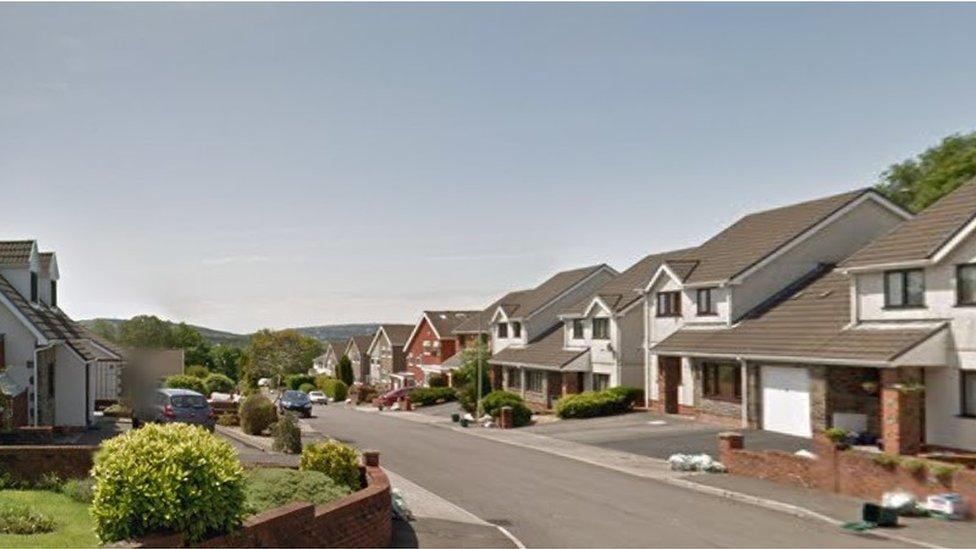
- Published15 November 2021
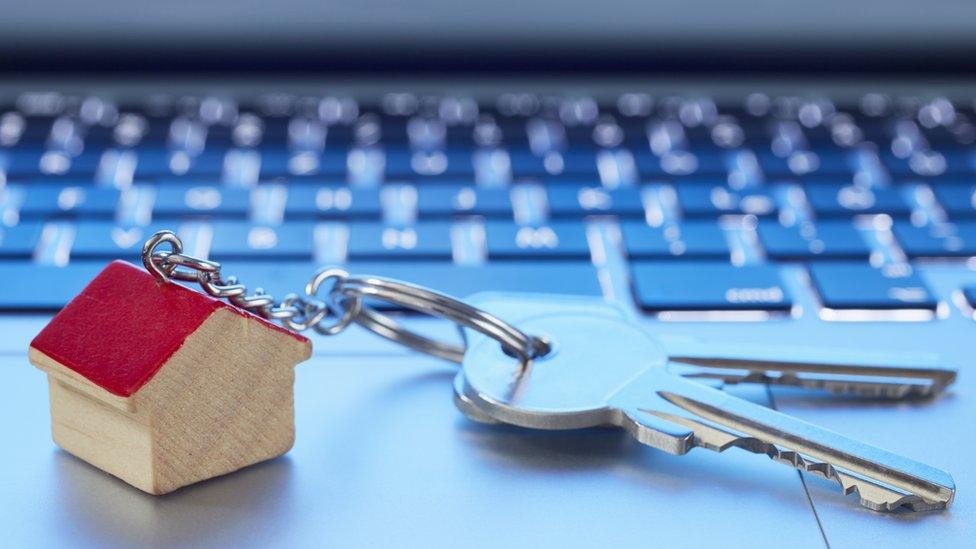
- Published29 October 2021

- Published1 October 2021
